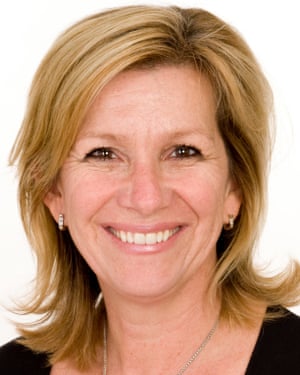“This is a way of working that’s so obviously beneficial that I’m not sure why we didn’t do it before. We’ve gone from uncoordinated, fragmented care that was very unsatisfactory for patients, to wraparound care that takes into account the holistic needs of the patient.” Dr Karen Kirkham, a GP in Weymouth, is describing how Dorset has been quietly implementing a different way of providing healthcare which, if it works out, might just help save the NHS.
Sitting in a side room at Weymouth’s Westhaven community hospital, Kirkham outlines an approach that is simultaneously radical and commonsensical, and also controversial, despite being backed by all those whose job is to improve the health of Dorset’s 750,000 residents. “In Dorset, necessity has been the mother of invention. We’ve taken the issue of relentlessly rising demand and proposed bold action to adapt what we do for our patients,” she adds. While all this sounds novel, it is also one of the oldest tunes in the jukebox of NHS great policy ideas.
By bold action she means integration – both of health services and also health services with social care – reconfiguration of acute hospital services and the creation of 10 “hubs” to coordinate or deliver a recently extended array of out-of-hospital services. Dorset’s push to modernise how health and social care work is so advanced that on Friday NHS England’s chief executive, Simon Stevens, will name it as one of the official microcosms of the “new NHS” he has pledged to create by 2020.
Dorset will be one of between six and 10 areas of England in which Stevens will give the green light to the local NHS sustainability and transformation plan (STP). These will be the first wave of what he still hopes will ultimately be all 44 regional STPs, each doing their bit to implement the “five-year forward view” he originally set out in October 2014. Its mission: to make the NHS sustainable as a system of healthcare by both improving quality of care and preventing illness occurring in the first place, while simultaneously somehow bridging the £22bn gap in the service’s finances expected by 2020. Stevens’s “delivery plan” this week will hail Dorset as a pioneer from whom the wider NHS can learn a lot.

Kirkham has played a key role in recent years in building agreement between Dorset’s three acute NHS trusts, one community services trust, 97 GP practices, three local councils and 30,000 clinical staff – and Dorset NHS clinical commissioning group (CCG), with which she is the assistant clinical chair – that working together is the right direction of travel. NHS and town hall chiefs across the country recognised in 2015 that they had to transform how they provided health and social care if services were, in her words, to avoid being “overwhelmed with demand” caused by the ageing population.
Dorset CCG’s Your NHS document, which explains what it admits are “large-scale changes to health and care services in both community and hospital settings”, is admirably no-nonsense on the urgent need for change. “Doing nothing is not an option, because by staying the same our healthcare would get much worse. Doing nothing would mean lower safety standards, worsening health [and] reduced survival rates,” it says.
Integrated community services are a key element of the STP’s ambition to keep people out of hospital, provide much more care in or near people’s homes and ensure that the anticipated £229m deficit in Dorset’s NHS finances does not emerge as expected by 2021. And the 10 “community hubs” are the key to making integration itself work. They are all similar in that they all coordinate the delivery of care; but while seven have beds attached for patients, three do not.
The hub for Weymouth is no more than a room at Westhaven hospital full of desks, computers and telephones. But this is where different types of care professionals – including GPs and personnel from the ambulance service, local acute hospital, social care and district nursing services – work together to take calls from fellow professionals, discuss individual patients’ needs and decide how each is cared for.
“It’s a simple idea – that when GPs need to refer a patient, for surgery or a home visit or a residential home placement, they ring one number and refer the problem to the team in the hub, and they decide what to do. It’s a one-stop shop,” explains Dr Riaz Dharamshi, a consultant geriatrician who works two and a half days a week with the hub team, including paying home visits to frail, elderly people.
Louise Clark, head of occupational therapy at Dorset healthcare NHS foundation trust, explains: “If we need to discharge someone from the local acute hospital we refer them to the hub. They arrange the care that someone needs – therapy, district nurses or mental health input, so that the person can go home safely. They wrap the care around them in a way that didn’t happen before.”
The service is aimed primarily at frail elderly people, who comprise about 80% of all hospital inpatients these days and are therefore a huge driver of the increasing costs facing the NHS as a whole. Dorset’s coastline and quality of life means it has far more over-75s and more over-85s than the average for England, with those numbers due to swell in coming years.

If one of them needs an investigation, or rehabilitation after a spell in hospital, then they go into Westhaven’s 34-bed ward. “That might be someone who has become confused or had a fall but not broken a bone,” says Dharamshi. The average age of those admitted here is 86.
A similarly joined-up, multidisciplinary approach elsewhere in Dorset, coupled with the opening last September of a frailty unit at Royal Bournemouth hospital, has seen the average length of stay for acutely frail elderly people treated in its older people’s medicine wards fall from 10.3 days as recently as April 2016 to just 5.87 days now – a difference of 4.43 days. As it costs £400 a night to keep a patient in an acute hospital, that means the average cost of treating a patient has fallen from £4,120 to £1,772.
Dr Andrew Williams, the hospital’s clinical director of older people’s medicine, stresses that the motivation for everyone working together to support medically vulnerable older people is not financial. “The project was about improving patient outcomes, not cash savings,” he says. Stopping older people becoming inpatients unnecessarily means they are much less likely to get “deconditioned” – to lose vital muscle mass due to being in hospital – which makes them more likely to fall over, lose their independence and have further complications, he adds.
There are other big benefits, too. Extra care at home means the average length of time for which such patients need support after discharge has fallen from 32 to 24 days. And this means the hospital has more spare beds, is more likely to hit its four-hour A&E target and less likely to have to cancel operations due to overcrowding.
Other elements of Dorset’s STP are certainly proving controversial: Bournemouth becomes the main acute hospital, while Poole will play the lead role for non-urgent care. As a result, Poole is set to lose its A&E unit and maternity and paediatric services. In all, 100 acute beds are due to go across the county, at least three community hospitals face the axe, while the number of beds in the remaining community hospitals will also be dramatically scaled back. Poole residents and campaign groups 38 Degrees and the NHS Support Federation are among those that have voiced concern.
But Stevens sees Dorset as a trailblazer, a crucible of how the entire NHS across England needs to work. “Dorset’s NHS has been ahead of the game in spotting that the local NHS needs to join forces to be more than the sum of its parts. They are proposing important changes for patients.
“It has been clear for a long time that the traditional divide between GPs, hospitals and community services is increasingly a barrier to the personalised, coordinated healthcare patients need. We can see in Dorset that this is the kind of practical improvement that many doctors, nurses and carers are now beginning to create.”
Wraparound care: is it the future of the NHS? | Denis Campbell
Hiç yorum yok:
Yorum Gönder